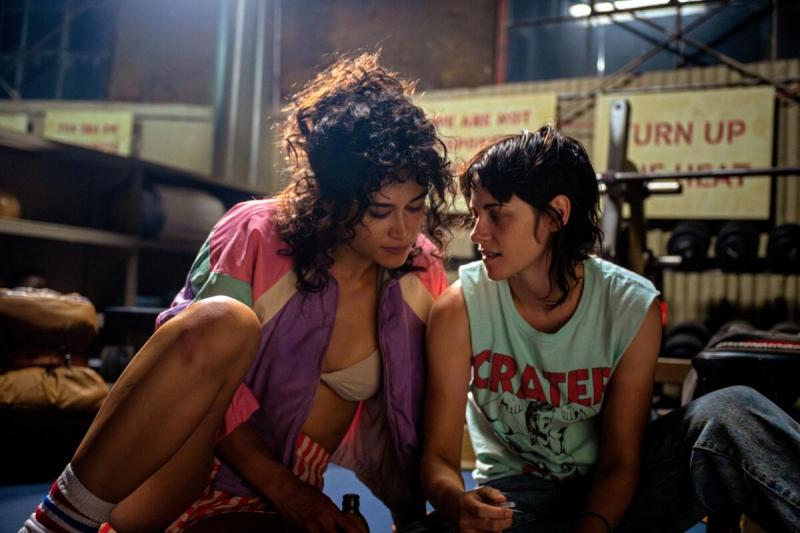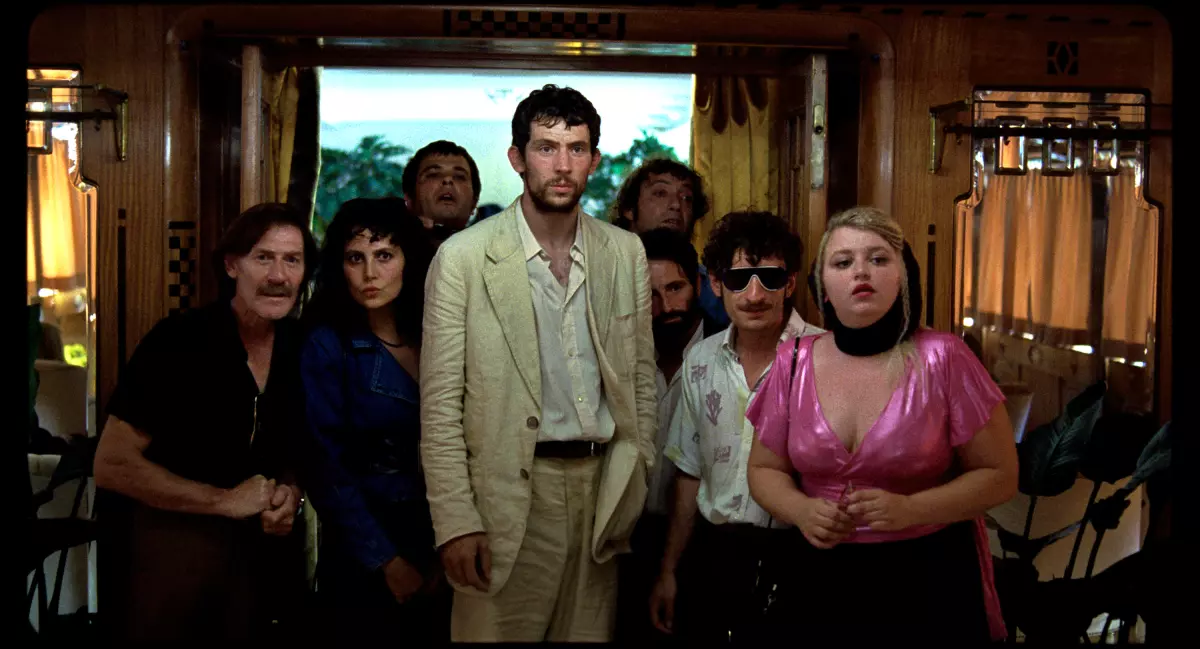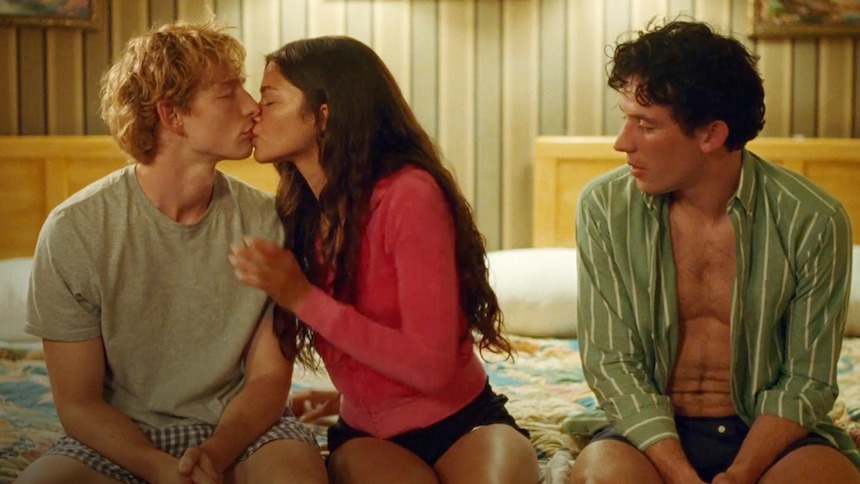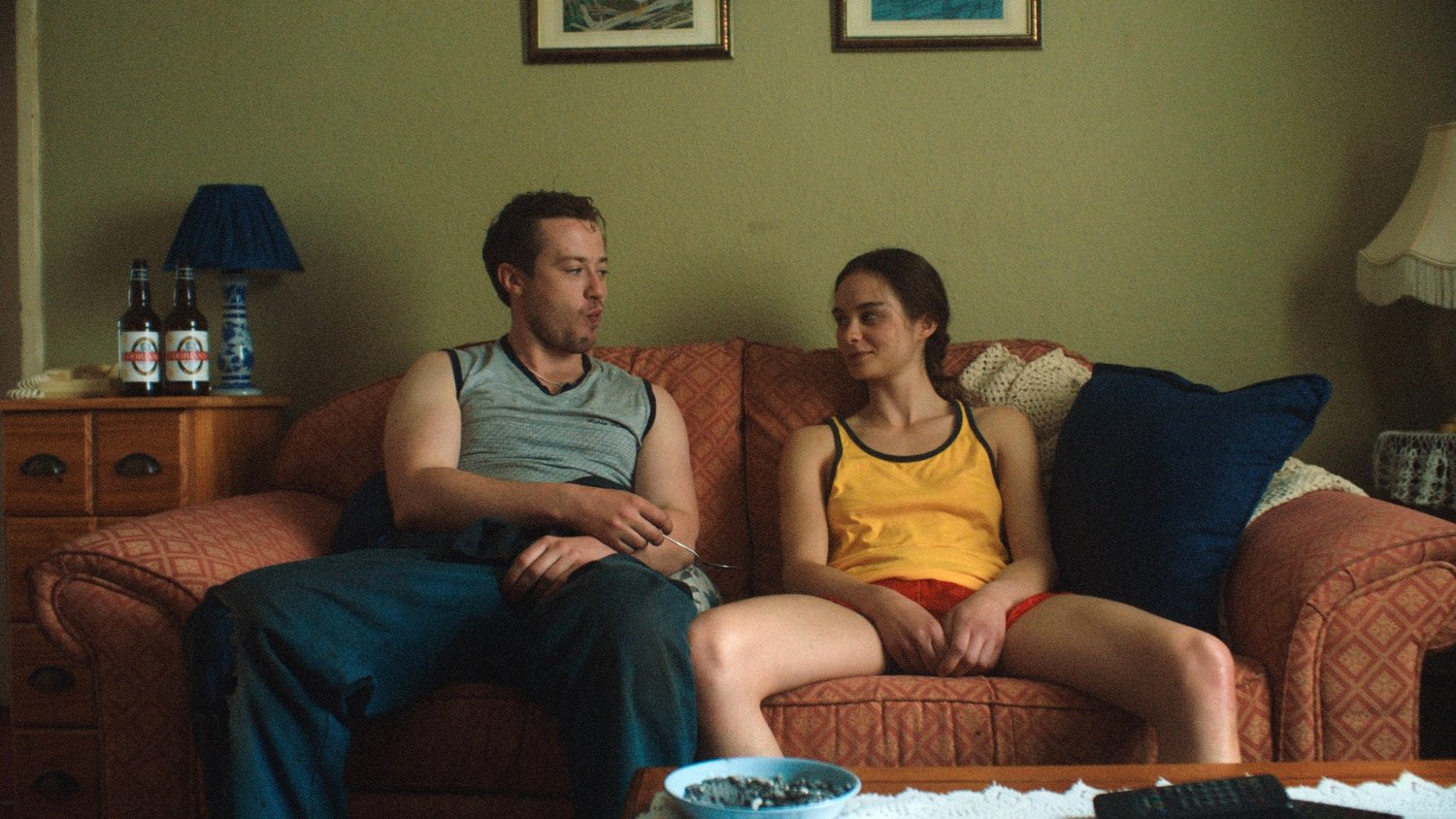Summer of Love: Four of the Best Films to See Right Now
By Maddalena VattiLove and relationships never fail to intrigue us: their complexities are responsible for a significant amount of the art that we consume. This summer, several film releases capture the intricacies, tensions, and triumphs of this special human connection – especially when fated to end. Whether it is love at first sight, as the one between Lou and Jackie, the ride-or-die couple in Love Lies Bleeding; a love long lost whose end one struggles to accept, as it is for archaeologist Arthur in La Chimera; or a love triangle probing at the power dynamics inherent to sexual relationships (and non) – like that of Tashi, Art and Patrick’s throuple in Challengers; or even a hunger for love explored in its more dysfunctional forms – incestuous, predatory, crazed – like in Luna Carmoon’s debut Hoard, these drastically different perspectives and stories capture a shard of what being in love is, ferrying us into summer of lust and longing.
Love Lies Bleeding

For those who watched Saint Maud, Rose Glass’ penchant for the grotesque will not be surprising in Love Lies Bleeding, which stylistically follows suit and positions itself as a grindhouse, revenge-fuelled Thelma & Louise. Lou (Kristen Stewart) is an introverted lesbian working in the family’s local gym and performing various undignified tasks, like regularly unblocking the toilets, while fending off the attentions of the local ditzy, brown-toothed blonde who is tragically in love with her. This is until Jackie (Katy M. O’Brien), on her way to a bodybuilding competition in Las Vegas, passes through town and starts training at Lou’s gym. She is hot, ripped, and irresistible – between the two, it is love at first sight. The first days of their relationship are filled with lust, sex, blossoming sweet romance, and injecting steroids (which Lou fatally introduces to Jackie). Lou spends a lot of time staring at Jackie’s mesmerising body and, thanks to the great camera work, viewers are generously invited to indulge in Lou’s obsession too, powerless to resist. But this is not just a happy tale. As Jackie’s body and mind pulsate with a new energy, an (almost) accidental murder sends the two lovers on the run, chased by Lou’s horrible father, the police, and their own private demons. Glass’ desire to cross lines – both symbolically and visually – presenting the viewer with uncomfortable and horror-adjacent imagery, often blurring the lines between dream and reality, brings us fully into the territory of Julia Duournau and David Cronenberg. This is a dark, totally weird, high-octane fever dream that sometimes feels like queer bodybuilder fanfiction, at others like a gritty thriller, and a lot like a romance, featuring a stunning performance from Kristen Stewart who elevates her character to extraordinary humane heights.
La Chimera

I have a soft spot for directors that can quietly capture the surreal, and Alice Rochwacher is one of them. Her Lazzaro Felice (Happy as Lazzaro) was a triumph in this genre, and La Chimera is a near-perfect execution of magical realism and a modern fable viewers will struggle to forget. Set in the 1980s in the small village of Riparbella, in central Italy, the film features Arthur (Josh O’ Connor), a quiet British archeologist who, holding a Y-shaped twig like a diviner, leads his gang of misfit friends to underground Etruscan graves they will then rob of their artefacts. The title La Chimera invokes the pastiche of genres which culminate in forming an unlikely whole – like for the hybrid Greek monster – and describe the “fits” that Arthur experiences when nearing a tomb. Arthur is grieving the loss of his girlfriend Beniamina (Yile Vianello), and has remained very close to her mother Flora (played stunningly by iconic Isabella Rosellini), in part thanks to the denial they both share in relation to Beniamina’s disappearance (at the beginning of the movie, when Arthur visits Flora, she presses him, “So tell me, have you found her yet?”) The protagonist’s talent for sensing the underworld and finding the homes of the dead is perhaps a parallel with the quest for his lost lover – he is an Opheus who travels to the underworld to find his Eurydice. There is an actual fil rouge here, a bright red thread which starts unravelling from the dress of Beniamina in the very first scene, and which Arthur follows in and out of this world. The echoes of Fellini, in particular, Amarcord, are very strong – the mix of magical, grotesque and folkloristic, where the hero wears an elegant cream linen suit throughout but lives in a makeshift cabin and spends most of his time leading a gang of rag-tag tomb raiders digging out the dead, suspends this story in space and time and imbues it with the immortal charm of fairy tales.
Challengers

When I asked a friend what he thought of Challengers, I was surprised to hear he loved it: “Luca gets the inherent tragic absurdity of heterosexual relationships,” he said. Tashi (Zendaya) is a tennis prodigy, and fellow players Art (Mike Faist) and Patrick (Josh O’Connor) are painfully lusting over her, until one night they manage to get her to meet them in their hotel room and things develop, perhaps as none expected (she kisses Art, then Patrick, then the boys kiss each other). Over a decade later, Tashi is married to Art. She has retired from tennis after suffering a knee injury and is working as her husband’s hard-ass coach. They are filthy rich and famous, their beautiful faces plastered on billboards that read, “game changers.” Patrick, instead, is a down-on-his-luck homeless man sleeping with strangers met on Tinder just to get a bed to stay in. And tennis is still the only thing he knows how to do well. Art and Patrick, who used to be best friends but never got over their rivalry for Tashi, face each other in a match on which everything depends, including the future of Art’s marriage. The story of this throuple truly comes to life thanks to an excellent playlist, creating both hype and tension during the tennis matches and make-up sessions between the characters, and by the excellent photography: saturated colours, bodies glistening and dripping with sweat, intense close-ups of the characters’ concentrated frowns. Every choice from director Luca Guadagnino seems intentional, even when it doesn’t land perfectly. Conversations are shot like tennis matches, the camera moving from one character to the other as they speak, responding to the serve as best as they can, keeping the ball moving until they decide to go for the kill. Other times, instead, it is the viewer to be transformed into the ball, like during the last match between Art and Patrick — where we bounce deliriously between the two egos. It’s Tashi who perhaps foreshadows this at the beginning of the film when she says, “tennis isn’t just a game, it’s like a relationship.”
Challengers is almost good, it hits some of the right notes and it could have been a Jules et Jim for our generation, but it feels a little too silly, though I won’t deny it is a hoot. I walked into the cinema expecting a film about desire, and left feeling like I’d watched three teenagers dry hump each other (both physically and emotionally) into adulthood. Challengers is a movie always on the verge of saying or doing something interesting – especially about how power is distributed in couples and friendships – but it never really climaxes, except, perhaps, in masterfully showing how tragic and absurd romantic relationships have become. It made me think of Oscar Wilde who once famously said, “Everything is about sex, except sex. Sex is about power.”
The Hoard

Hoard is a harder watch than the rest of this month’s picks: because of its disturbing storyline and for the director’s uncompromising stance when showing discomfort – a lot of rubble, few rubies. The film starts showing Maria (initially played by Lily-Beau Leach), and her mother Cyd (Hayley Squires) rummage around local bins in the evenings in hope of finding treasures to decorate their place. The two, who share a love that borders on obsession, call their collection a “catalogue of love”. Like other British directors whose feature debut has released in the last couple of years – Charlotte Wells’s Aftersun and Charlotte Regan’s Scrapper come to mind – Luna Carmoon shows an interest in working-class families; she has a curiosity in investigating what it means to come-of-age within a dysfunctional setting.
In Hoard this passing down of an obsession and aftermath of trauma is perhaps a little on the nose when, fast forward to 18-year-old Maria (Saura Lightfoot-Leon) – who now lives in a pristine foster home and is still grieving the loss of her mother – ends up falling for Micheal (Joseph Quinn), a binman in his 30s. Michael reignites her obsession for inviting trash back into her life. Love and death (mostly expressed in the form of lust and grief) are inseparable and ever present: Maria’s sexual awakening with Micheal is visceral, happening on all fours, the pair sniffing each other out, wading through bin juice and piles of rotting objects. Some tender moments and humour shimmer in this tragic, horror-laced, south-London psychodrama, which I think suffers a little too much from a desire to want to shock and unsettle to truly land emotionally. But it’s an interesting debut and Saura Lightfoot-Leon is truly alluring, moving and amusing to watch – plus it might leave you with a burning urge to declutter.
Maddalena Vatti is a literary scout and freelance writer based in London. Her writing has appeared on Review 31, Lit Hub, Il Tascabile and other magazines.